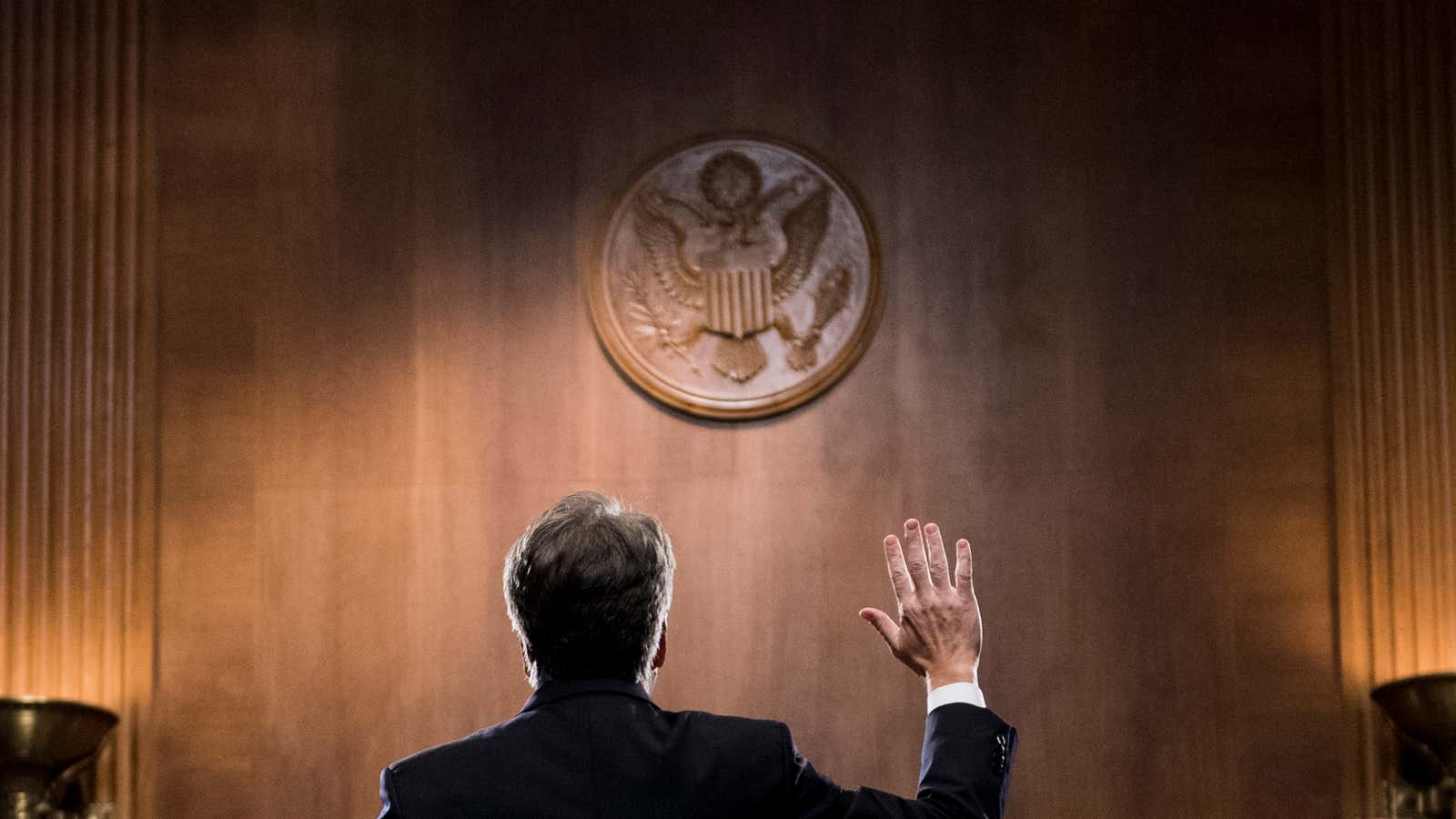It is a bold move to sit, as Supreme Court nominee Brett Kavanaugh did yesterday, and confidently claim under oath to have been a young person who liked beer, drank beer, sometimes had too many beers, but never once experienced a lapse in memory as a result of drinking too many beers. (He vomited, sure, but only because he has “a weak stomach, whether it’s with beer or with spicy food or anything.”)
On a remarkable day in which both the definition of “ralph” as a verb and the existence of a man called “Squee” were entered into the official transcript of a Senate Judiciary Committee hearing, Kavanaugh’s dogged refusal to have ever experienced this particularly common side effect of adolescent alcohol consumption was among the most dispiriting.
It’s a statement that strains credulity. “Brett was a sloppy drunk, and I know because I drank with him,” a medical school professor and former college friend of Kavanaugh’s told the Washington Post. “There’s no medical way I can say that he was blacked out. . . . But it’s not credible for him to say that he has had no memory lapses in the nights that he drank to excess.”
To admit to ever waking with a hazy memory following a night of excess consumption would invite questions about what may have occurred in those moments he can’t recall with perfect accuracy. It might mean his story would be picked apart and his memory and credibility questioned, as is often the case for victims of sexual assault who consumed alcohol before they were attacked.
Kavanaugh’s nomination to the high court feels so sadly appropriate for this age of politics by gaslight. At the announcement of his nomination in July, Kavanaugh opened by claiming that “no president has ever consulted more widely or talked with more people from more backgrounds to seek input about a supreme court nomination,” a bit of hyperbole that can’t be proven false but that Kavanaugh also can’t have known was true.
It’s the kind of lie that a clever but slippery person tells to satisfy a boss known to prefer a doctored version of reality to the actual one. It’s not that different from former press secretary Sean Spicer insisting with a straight face that Trump’s was the best-attended presidential inauguration in history, when photographic evidence so clearly proved it wasn’t; or UN ambassador Nikki Haley claiming that the UN General Assembly was laughing with Trump and not at him, when they clearly weren’t; or his lawyer Rudy Giuliani asserting that “truth isn’t truth” while poor Chuck Todd drops his face in his hands.
Kavanaugh may be telling the truth about his memory, or at least what he believes to be the truth. But it is also much easier for Kavanaugh to shut the door on that line of questioning altogether, to pretend that it’s not reasonable to question how an adolescent with an immature relationship to alcohol might have behaved while under its influence. And he got away with it, to the point that he was comfortable snapping “I don’t know. Have you?” at a senator who asked if he’d ever blacked out. (He later apologized.)
It is no secret that Trump surrounds himself to an unusual degree with lackeys willing to lie to him and for him. But Kavanaugh is seeking a lifetime appointment to the country’s ultimate arbiter of justice, a thing that can’t exist without truth. A willingness to play with accuracy when it’s politically convenient is a disqualifying trait—or, at least, it should be.
